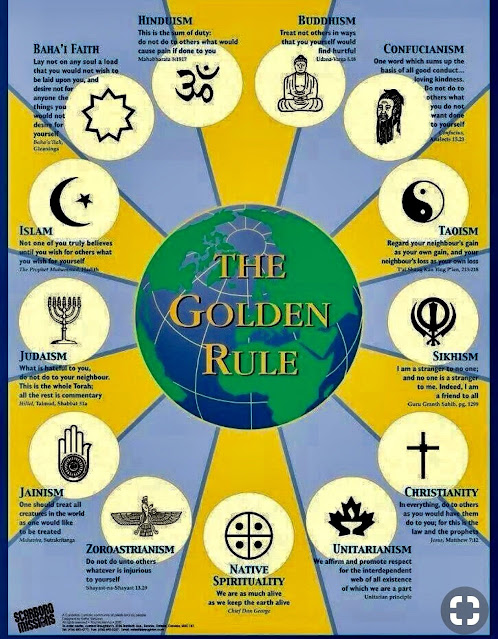Michael Corthell, The Vegan Project
The Golden Rule, also known as the ethic of reciprocity, is a moral principle that encourages individuals to treat others as they would like to be treated. This principle is found in various religious and philosophical traditions and is often considered a fundamental principle of ethical behavior.
Veganism is more than just a dietary choice; it is a philosophy rooted in compassion and empathy for all living beings. At the heart of this ethical lifestyle lies the Golden Rule, a moral principle that guides vegans in their quest for a more compassionate world. In this article, we will explore the application of the Golden Rule in the context of veganism, highlighting its significance in shaping our treatment of animals and the planet.
Putting Ourselves in Their Shoes: One of the simplest ways to understand the Golden Rule's relevance to veganism is to imagine ourselves in the position of the animals we consume for food. Consider the plight of animals raised for meat, dairy, and eggs: confined in cramped spaces, subjected to painful procedures, forcibly impregnated, and ultimately slaughtered. If we were in their place, would we want to endure such suffering? The answer is likely a resounding no. By applying the Golden Rule, we recognize the inherent value and sentience of these animals and choose to treat them with the kindness and respect we would expect for ourselves.
Animals as Equals: Veganism is firmly rooted in the belief that animals are entitled to the same consideration and rights as humans. The Golden Rule serves as a guiding principle for implementing this belief, reminding us to extend compassion and empathy to all living beings, irrespective of their species. By embracing veganism, we acknowledge that animals should not be treated as mere objects or commodities, but rather as individuals deserving of a life free from exploitation and suffering.
Extending Beyond Animal Welfare: While the Golden Rule is primarily associated with the treatment of animals, veganism also extends its reach to environmental sustainability. In line with this principle, vegans recognize the importance of treating the planet with the same care and respect we would want for ourselves. Animal agriculture, a major contributor to deforestation, greenhouse gas emissions, and water pollution, has a detrimental impact on our environment. By adopting a plant-based diet and reducing our consumption of animal products, we can actively contribute to a more sustainable future, aligning our actions with the Golden Rule.
Conclusion: The Golden Rule provides a moral framework for the practice of veganism, urging individuals to extend compassion, empathy, and respect to all living beings. By adopting a vegan lifestyle, we not only refuse to contribute to the suffering of animals but also actively work towards a more just and sustainable world. As we apply the Golden Rule to our choices, we promote the notion that animals deserve the same consideration as humans and that the planet merits our care and respect. By aligning our actions with this fundamental principle, we take a crucial step towards creating a more compassionate and harmonious world.
References:
- Francione, G. L., & Garner, R. (2010). The Animal Rights Debate: Abolition or Regulation?. Columbia University Press.
- Joy, M. (2011). Why we love dogs, eat pigs, and wear cows: An introduction to carnism. Conari Press.
- Regan, T. (1983). The case for animal rights. University of California Press.
- Singer, P. (1975). Animal liberation. Random House.
- United Nations Environment Programme. (2012). Assessing the Environmental Impacts of Consumption and Production: Priority Products and Materials. Retrieved from https://www.unep.org/resources/report/assessing-environmental-impacts-consumption-and-production-priority-products-and

Comments
Post a Comment
We welcome your input!